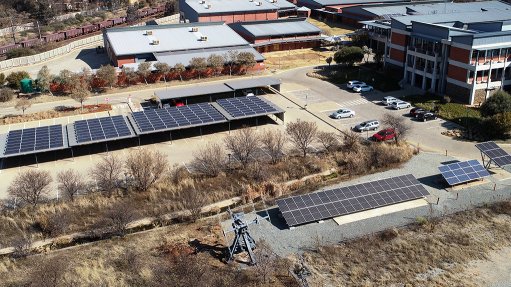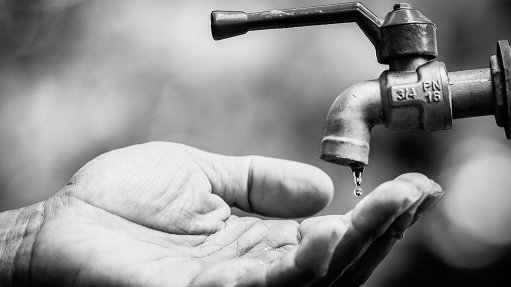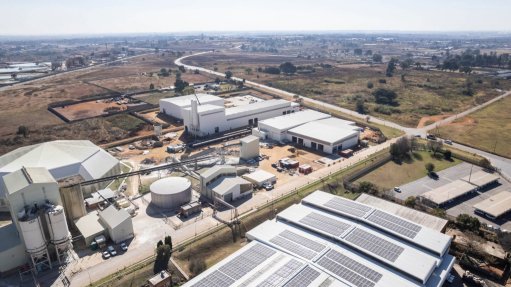Aquaculture a 'powerful means to address food and nutrition security across Africa' – Singh
Globally, aquaculture contributes more than 50% of all aquatic products, thereby making a significant contribution to the transformation of food production systems.
The continued expansion of aquaculture offered a powerful means to address food and nutrition security and promote equitable benefits across communities in Africa, said Forestry, Fisheries and the Environment Deputy Minister Narend Singh.
Statistics from the United Nations Food and Agriculture Organisation showed that aquaculture is the fastest-growing food sector, expanding at 7% a year. The organisation also predicts that Africa will see the biggest growth in aquaculture.
Expansion in Africa's aquaculture sector was nearly double the global rate, with growth rates reaching up to 23% in some regions, Singh said.
"As we confront the challenges of climate change, population growth and food insecurity, aquaculture offers us a powerful tool for sustainable development.
"It presents an opportunity to enhance our nutrition and food security, generate employment, especially in rural areas, and drive economic growth while safeguarding our environment and promoting the sustainable use of our natural resources," he highlighted.
Aquaculture was considered a new sector and growth would continue to be driven by technology and market demand. To achieve long-term growth, Africa must invest in solutions tailored specifically to the African environment, which addressed challenges such as sustainable, affordable feed production, aquatic animal health management and climate resilience, he said.
By developing and adopting technologies and practices suitable for local conditions, Africa can ensure that aquaculture development is both efficient, implementable and environmentally responsible.
"Fostering a culture of continuous learning and adaptation will enable us to build a vibrant aquaculture sector that supports social and economic growth, conserves natural resources and meets the nutritional needs of our communities.
"However, technology development and innovation are best achieved through collaboration and partnerships across borders, sectors and communities. It is through collaboration that we can share knowledge, develop capacity and drive the technological advancements needed to unlock the full potential of aquaculture in Africa," Singh said.
Collaboration with member States and technical partners within the Southern African Development Community and the African Union (AU) was foundational to advancing regional strategies that promoted resilient, productive and sustainable aquaculture practices in Africa, addressing regional needs and gaps, he averred.
"At an international level, South Africa is working closely with partners in the EU, the People's Republic of China, and other global institutions through initiatives like the ASTRAL project, which is an EU Horizon 2020-funded project and a collaborative effort focused on innovative and sustainable circular waste management technologies," he highlighted.
Aquaculture production embodies the future of transformative food systems. Supporting this through increased fish consumption not only benefits African communities' health, but also bolsters local producers.
The government of South Africa had identified aquaculture as a priority for the country, he noted.
The Department of Forestry, Fisheries and the Environment (DFFE) is coordinating various support interventions to unlock sector growth, including creating an enabling business environment through the establishment of Aquaculture Development Zones, enacting dedicated aquaculture legislation, unlocking local and international markets, supporting technology development and coordinating funding and finance support programmes.
An exciting project is investigating kelp farming for South Africa, which has significant value chain opportunities.
"Within South Africa, our collaboration with a wide range of academic institutions, associations, industry stakeholders and communities has proven highly effective, which has yielded remarkable outcomes, extending beyond academic achievements to influence commercial activities, community investments and policy formulation," Singh said.
The DFFE's focus will continue to be on research, networking, information sharing and capacity-building.
"Collaborations are fundamental to the mission of developing a robust and sustainable aquaculture sector that delivers widespread benefits across Africa," he said.
Article Enquiry
Email Article
Save Article
Feedback
To advertise email advertising@creamermedia.co.za or click here
Comments
Press Office
Announcements
What's On
Subscribe to improve your user experience...
Option 1 (equivalent of R125 a month):
Receive a weekly copy of Creamer Media's Engineering News & Mining Weekly magazine
(print copy for those in South Africa and e-magazine for those outside of South Africa)
Receive daily email newsletters
Access to full search results
Access archive of magazine back copies
Access to Projects in Progress
Access to ONE Research Report of your choice in PDF format
Option 2 (equivalent of R375 a month):
All benefits from Option 1
PLUS
Access to Creamer Media's Research Channel Africa for ALL Research Reports, in PDF format, on various industrial and mining sectors
including Electricity; Water; Energy Transition; Hydrogen; Roads, Rail and Ports; Coal; Gold; Platinum; Battery Metals; etc.
Already a subscriber?
Forgotten your password?
Receive weekly copy of Creamer Media's Engineering News & Mining Weekly magazine (print copy for those in South Africa and e-magazine for those outside of South Africa)
➕
Recieve daily email newsletters
➕
Access to full search results
➕
Access archive of magazine back copies
➕
Access to Projects in Progress
➕
Access to ONE Research Report of your choice in PDF format
RESEARCH CHANNEL AFRICA
R4500 (equivalent of R375 a month)
SUBSCRIBEAll benefits from Option 1
➕
Access to Creamer Media's Research Channel Africa for ALL Research Reports on various industrial and mining sectors, in PDF format, including on:
Electricity
➕
Water
➕
Energy Transition
➕
Hydrogen
➕
Roads, Rail and Ports
➕
Coal
➕
Gold
➕
Platinum
➕
Battery Metals
➕
etc.
Receive all benefits from Option 1 or Option 2 delivered to numerous people at your company
➕
Multiple User names and Passwords for simultaneous log-ins
➕
Intranet integration access to all in your organisation


















